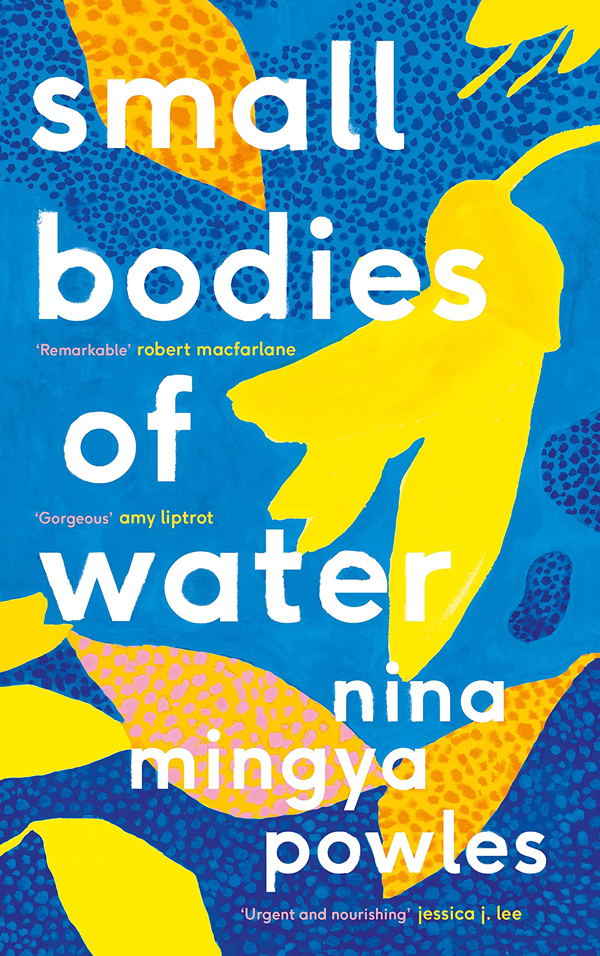“I never really intended to write about ecological loss, but I also don’t know how to avoid writing about it.” Nina Mingya Powles’ Small Bodies of Water, winner of the Nan Shepherd Prize, is a collection of essays so vividly connected to nature that even in its most enclosed spaces – public swimming pools, the shelves of libraries, university classes – metaphors and dreams of orcas and Kōwhai trees shudder through. Powles was born in Wellington, New Zealand (Aotearoa) and grew up there as well as in New York and Shanghai. In her opening essay, “A Girl Swimming is a Body of Water”, she writes that “home was a slippery word” and alongside the silhouettes of sea creatures and the central motif of water, this slipperiness lingers on each page. In “Crushed Little Stars”, a captivating piece that centres on the musician Mitski, Powles navigates questions surrounding race, belonging, and “existing in two places at once”.

Each essay is composed of controlled vignettes, where evocative literary sketches of Powles’ life are drawn thoughtfully together. This sequential, fragmentary structure feels integral to the book, wherein she meditates on temporal and geographical borders and how, like fault lines, her ancestry, her personal history, and her present continuously ebb and scatter among them. These movements are mesmerising, particularly as the narratives of each essay click into place. Powles’ themes vary across womanhood, racialisation, family, language, finding love, cooking and loss. She also addresses the colonial history of Sabah, Malaysia, where her mother was born, as well as her own positionality as tauiwi, “non-Māori, non-Indigenous,” from Aotearoa.
Small Bodies of Water is exhilaratingly intertextual, and it unfolds through conversations with artists, writers, scientists and other historical figures. The book’s closing essay is particularly astonishing. “In the Archive of waterfalls” Powles considers how lockdown affected her plan to visit Mount Kinabalu, to feel connectedness with its landscape and her lineage. Instead, she finds herself poring over catalogues of flora and fauna at the Linnean Society of London Library, connecting textually with the land and with books co-authored by her grandfather, a marine biologist. The language here is somehow piercingly technical, archival, and yet also tender, like a flower pressed between the pages of a book.
Small Bodies of Water by Nina Mingya Powles is out now (Canongate, £14.99)









